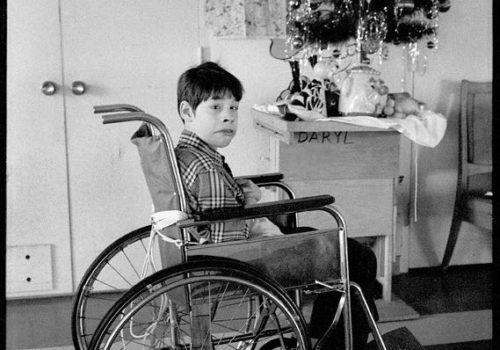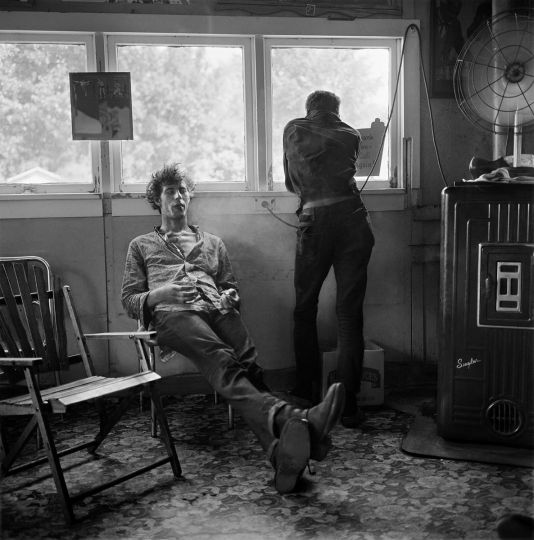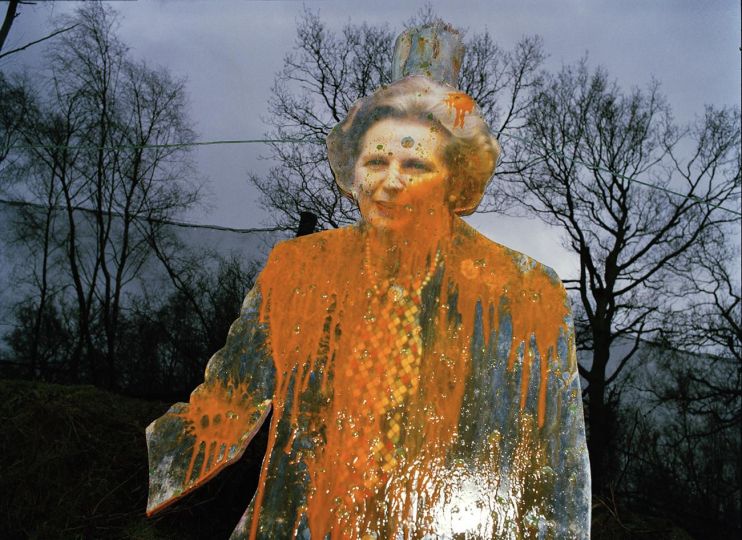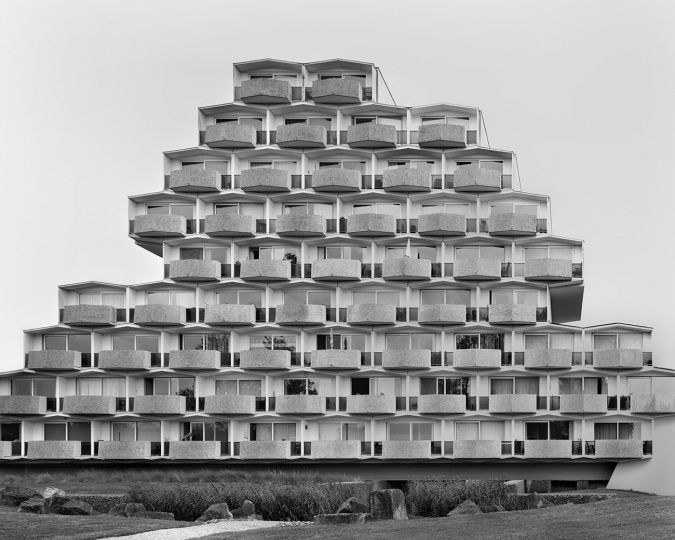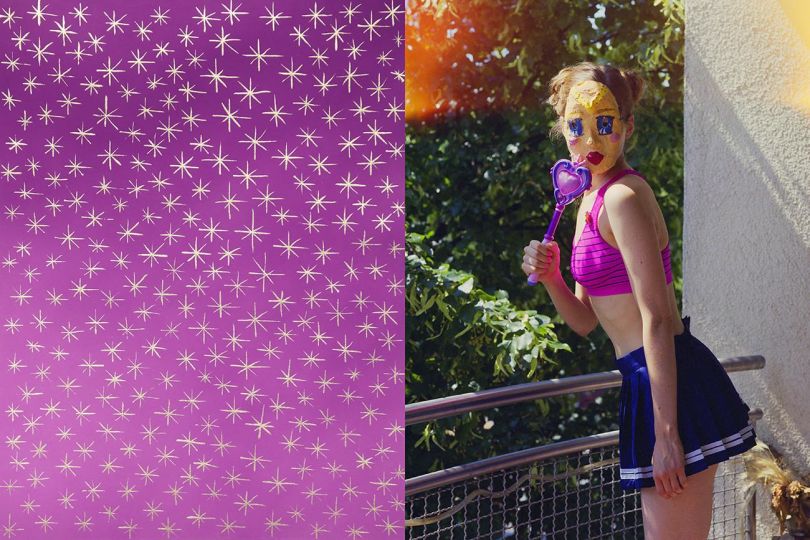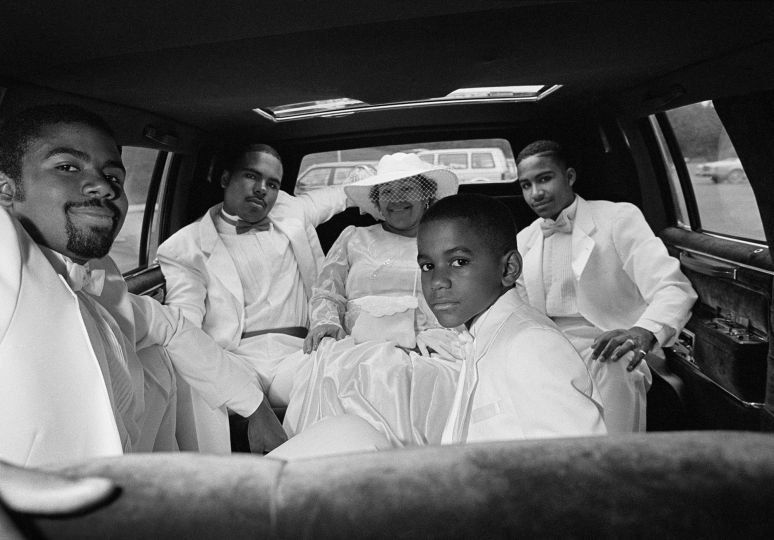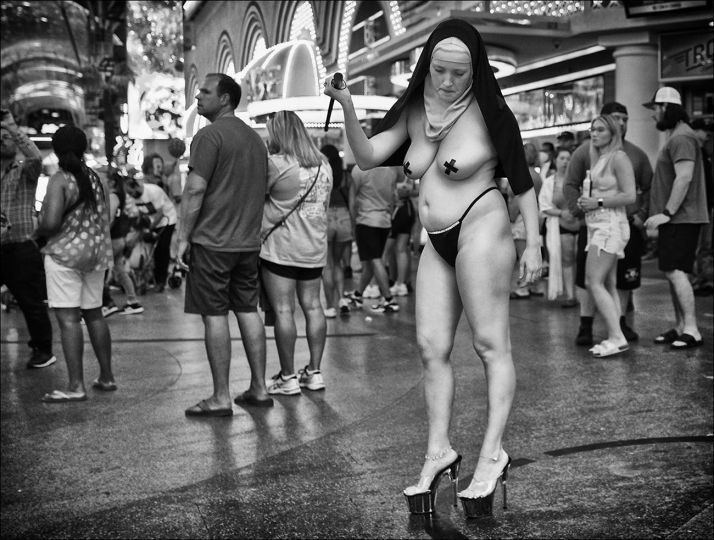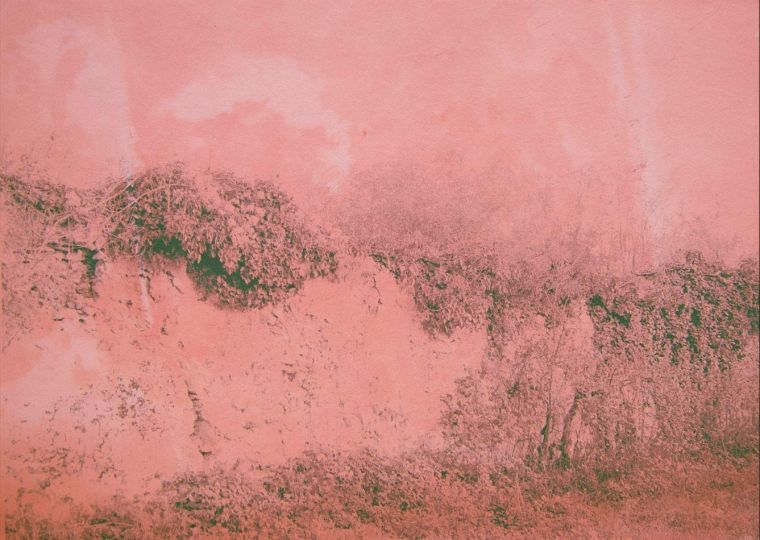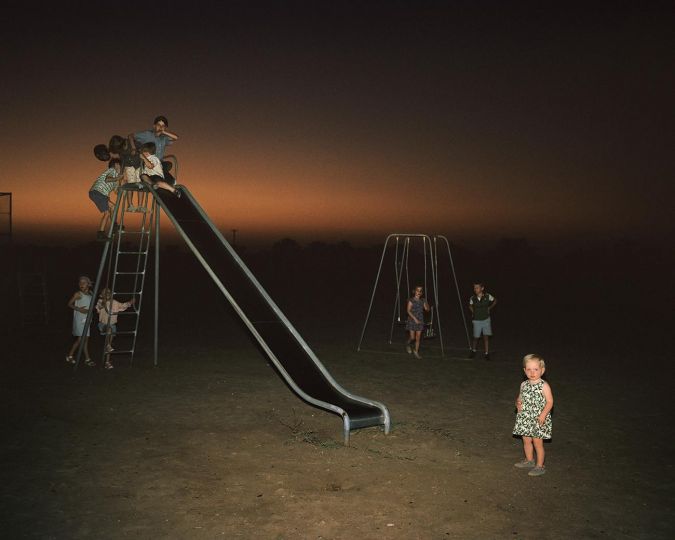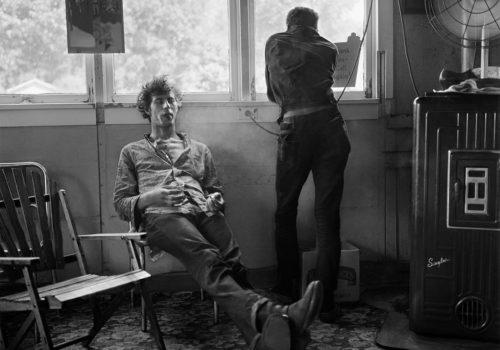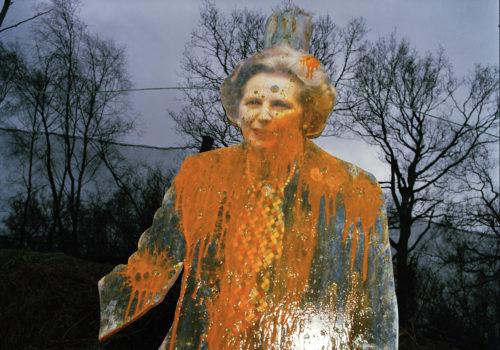In late summer through early fall of 1976, Ryan Herz was given the opportunity to photograph The Edgewood Center, a home for the developmentally disabled. The facility was in need of patients’ photo I.D.s or they would lose their funding. Apparently, numerous local photographers were offered the job but turned it down because they were uncomfortable with the situation. They found it “troubling.”
At the time, Ryan’s wife, Kay was working for Penny’s and was responsible for the Edgewood account, which was procuring, sizing and fitting the patient’s clothes. When she learned of the photo I.D. problem, she gave them Ryan’s name. Thrilled to be asked he jumped at the chance.
Herz was given total access. The resultant images are of patients who cover the landscape from mental retardation and severe autism to Down’s syndrome and brain damage. It is important to know that, even though some may look like adults, they are emotionally and developmentally children. “I had just a few minutes with each person,” Herz explains. “This both forced me and freed me to be instinctual rather than manipulative.” That spontaneity coupled with the intense humanity and the unfiltered emotions of the subjects gives the photographs their power. “Photography, for me,” Herz explains, “has always been about moments of transcendence. It’s about putting yourself, with a camera, into situations that while you can’t control, you can be prepared to recognize.”
“This project is a classic; it allows us to engage in a constructive dialogue about providing supportive treatment of all the members of our society, and about the importance of supplying the kind of help that special needs require. We see very clearly that Herz feels a profound respect and love for the individuals he portrays; this empathy allows him to give us an honest representation of these people’s lives in an atmosphere of deeply shared humanity.” – Gerhard Clausing, PhotoBook Journal
“Seeing these photographs I am overwhelmed with sorrow, sympathy and an appreciation for the human spirit. I am once again challenged as to what those of us in neuroscience research can do and learn in order to make a difference.” – David A. Hovda, Ph.D., Professor, Division of Neurosurgery UCLA
“This work is never easy to comb through. As a disabled person, looking at these photographs is often heartbreaking. In a history so filled with exploitation, Herz’s work often feels like a breath of fresh air. These photographs show a deep respect for his subjects. These are not photographs taken to emphasize difference, but to emphasize humanity.” – Aurora Berger, From the essay A Shared Humanity: Photography and Institutionalization in the 20th Century
The Children Of Edgewood
Photographs by Ryan Herz
Published by drkrm editions 2020
Foreword by David A. Hovda, Ph.D. Essay by Aurora Berger
12″ x 12″ Hardcover Image wrap, 102 pages.
http://drkrm.com/children.html

